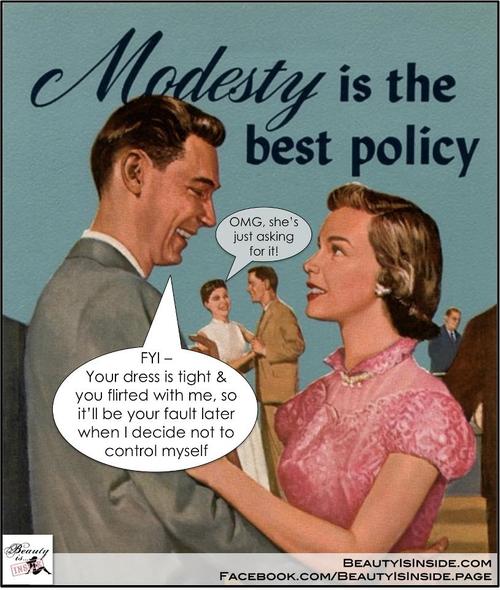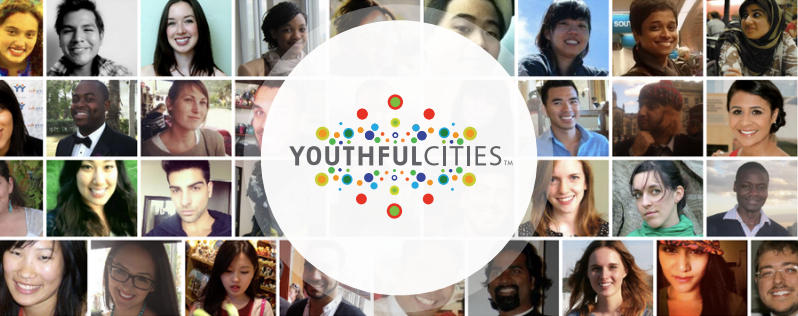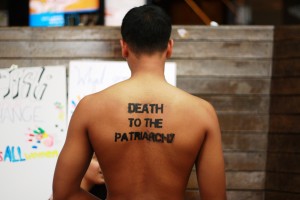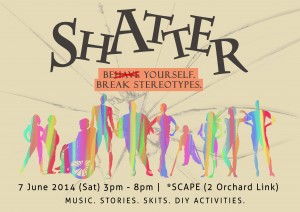By Akshita Vaidyanathan, Change Maker
“Yes, I kick like a girl, and I swim like a girl and I wake up in the morning because I am a girl and that is not something I should be ashamed of” – Always #LikeAGirl advertisement
Why is it that the phrase “Like a girl” is an insult?
The new viral advertisement by Always speaks to this negative stereotype in quite a heartfelt and touching manner. Always brought together a group of people, both male and female, and told them to do things like ‘run like a girl’, ‘fight like a girl’, or ‘throw like a girl.’ All the older participants’ portrayals, male and female alike, were comic caricatures of what they thought that phrase meant. They didn’t run nor fight like a normal girl would. Their portrayals showed something that is deeply ingrained into society – a notion that if you do anything like a girl, you are weak, and the phrase “like a girl”, as one of the participants states, is said as if “someone is trying to humiliate you.”
Gender stereotypes and insults are strongest when they are most subtle. And because “like a girl” has such a strong negative connotation, we’re inherently saying that one gender is better than the other and perpetuating gender inequality at an extremely young age.
 Disney movies are another good example of gender stereotypes that young children, notably young girls, are exposed to. Cinderella teaches girls that they aren’t worthy of a prince unless they look beautiful, but also have all the domestic skills a women must have. This stereotype is reinforced in Snow White, as Snow stays at home to cook and clean while the dwarves go off to do “the real work.” I wouldn’t be the first person to note how Beauty and the Beast normalizes the existence of domestic abuse and violence within relationships.
Disney movies are another good example of gender stereotypes that young children, notably young girls, are exposed to. Cinderella teaches girls that they aren’t worthy of a prince unless they look beautiful, but also have all the domestic skills a women must have. This stereotype is reinforced in Snow White, as Snow stays at home to cook and clean while the dwarves go off to do “the real work.” I wouldn’t be the first person to note how Beauty and the Beast normalizes the existence of domestic abuse and violence within relationships.
And it’s not just Disney Movies. These stereotypes are widespread throughout the media, as voiced in the 2011 documentary “Miss Representation.” This documentary, directed by Jennifer Siebel Newsom, illustrates the inaccurate representations of women in mainstream media. It discusses how media often fails to represent women in power in a favorable light, but very often represents women in a trivial, disparaging fashion. As we all know, we live in a world where media presence is so ubiquitous that this disparate portrayal of women has an extremely negative effect.
 When a force, especially one that has as much social power as the media does, labels women with these stereotypes, they
When a force, especially one that has as much social power as the media does, labels women with these stereotypes, they are perceived as real and can translate into real life environments. Women encounter the consequences of these stereotypes at the workplace, as they confront the glass ceiling while men glide up the glass escalator. They encounter these consequences in their own home, if they aren’t as domestic as they are “supposed to be”, or are unmarried, or don’t have children. In arguably one of the most violent ways, women encounter the consequences when they are blamed for their rape or assault because of the way they dress, or the way they act – because it wouldn’t have happened to them if they had done something differently, if they had somehow turned into the fictional women everyone sees on the media.
On the flipside, mass media has recently taken a step in the right direction. Television shows like “Orange is the New Black,” “Orphan Black”, “American Horror Story: Coven”, “Girls,” and “Veep” reject such stereotypes of women, and have strong female leads. They aren’t beauty and romance-centric, something that is a definite change in the representation of women in the media. Although a few movies in Hollywood have strong female leads, we have yet to see this become widespread throughout the movie industry.
Website “Mic.com,” recently posted an article titled “23 Women Show Us Their Favorite Position,” using a pun on the innuendo in a much more empowering way. It shows women holding up their favorite positions on placards: reading “CEO,” “President,” “Engineer.”

Of course, the Always advertisement does something very similar. In the second half of ad, we’re shown something that you don’t often see in advertising – something truthful. The younger female participants in the group are told the same things that the older participants were, but these girls don’t run comically. They run as fast as they can, they fight with grace and with strength and they throw their hardest. These young girls, run like themselves, fight like themselves, and show the strength than any girl has. As they should.
I urge you all to watch Always’ #LikeAGirl and help to rewrite what it means to be a girl.
 About the Author: Akshita is currently an undergraduate student at Tufts University in Boston studying Psychology and English. She was born in India, but grew up in Singapore for most of her life and attended UWCSEA Dover. She has a keen interest for gender equality and women’s and hopes to play her part in bridging the gap in gender equality, both here in Singapore and worldwide. In her free time she loves reading, spending time with her friends, binge watching television, writing (both creatively and not), and her favourite pastime – reading curious articles and about interesting studies on the internet.
About the Author: Akshita is currently an undergraduate student at Tufts University in Boston studying Psychology and English. She was born in India, but grew up in Singapore for most of her life and attended UWCSEA Dover. She has a keen interest for gender equality and women’s and hopes to play her part in bridging the gap in gender equality, both here in Singapore and worldwide. In her free time she loves reading, spending time with her friends, binge watching television, writing (both creatively and not), and her favourite pastime – reading curious articles and about interesting studies on the internet.


























